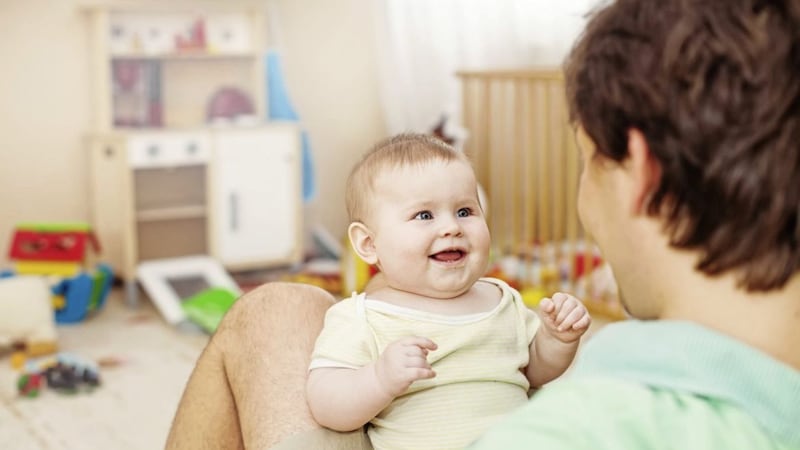WHAT day-to-day things can I do to help improve my baby's brain and development?
NSPCC campaigns manager, Rohini Pahl, says: "This is a feeling a lot of new mums and dads can probably relate to, and despite the reams of books and blogs out there, it can feel difficult to know where to begin.
"We carried out a survey which confirmed many parents and expectant parents don't know that something as simple as taking a cue from their young child and reacting to what they're doing can help their baby's social, emotional and cognitive development. Almost two-thirds were unaware of the benefits of this two-way interaction with their baby from birth.
"At the NSPCC, we've launched a campaign called Look, Say, Sing Play, to encourage parents to use everyday moments, such as going to the shops, bath-time and bedtime, to have more two-way interactions with their new babies. We know parents interact with their children all the time, but there's a real opportunity for them to do it more consciously to give them the best start in life.
"The good news is, you don't have to change your routine to have brain-building moments with your baby. Here are some examples of moments when you can look, say, sing and play:
"As you pop to the shops, take a few minutes and look into your child's eyes. As they look back, smile and talk with them. Do what they do, so if they blink, you can blink. Let them see your eyes, too, and try to keep eye contact. When your child looks at you and you respond, they're making many new connections in their brain.
"As you do laundry, say what you're doing. As you say the words, point to the objects. When they respond, continue the conversation by talking and pointing. You can help your child learn new words by doing this.
"At bath-time, make up a silly song about your child. Your voice is one of your child's favourite things to listen to. As you sing, they'll be paying close attention to your sounds, motions, and facial expressions to take in as much information as they can. They're learning about who they are by sharing this fun experience with you.
"When you play in the park, describe what you're doing and how it feels. Watch where your child looks or points and describe how that feels. As your baby hears and sees new ways to describe the everyday things, they're learning new words and concepts that help them understand their world.
"To get weekly tips, parents can sign up to an email from the charity via the NSPCC website (Nspcc.org.uk). Each one includes a fun, age-appropriate tip, which they can easily fit in to their daily routine."








